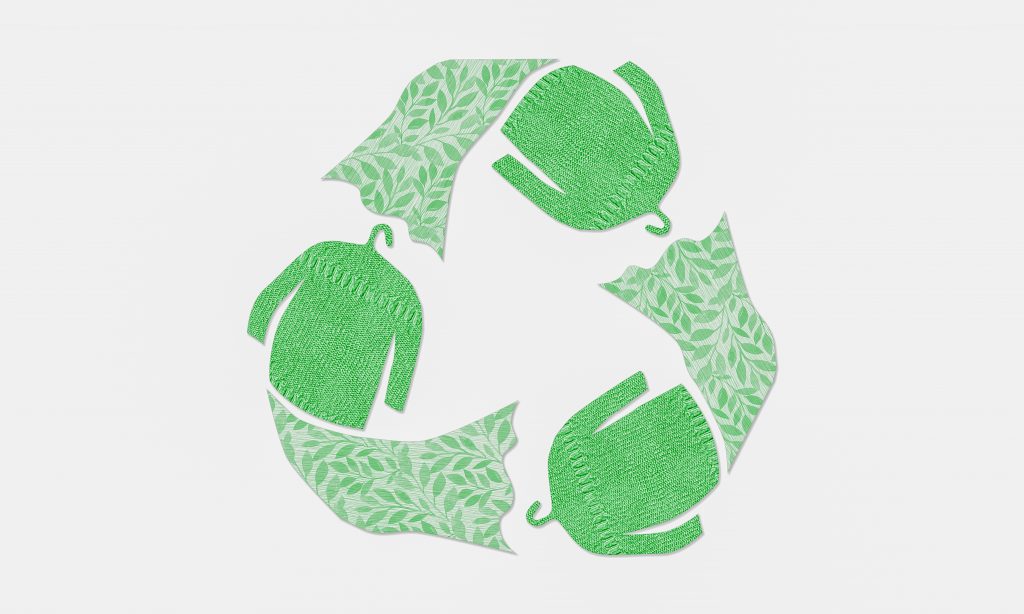Remain Ahead of the Curve by Exploring Cutting-edge Style Trends
In an industry as dynamic as fashion, staying in advance entails greater than simply adhering to present trends-- it demands an exploration of innovation. Smart textiles, for circumstances, are transforming garments right into useful work of arts, while 3D printing is changing style procedures with its adjustable, waste-reducing abilities. As sustainability becomes a cornerstone, technologies like eco-friendly products and round style practices are reshaping environmental obligation - Cape Town Sustainable Fashion. Furthermore, the convergence of technology and fashion declares a new period of customer involvement. Exactly how, then, can these emerging fads redefine the future of fashion, and what effects do they hold for brands seeking to thrive in this progressing landscape?

Embracing Smart Textiles
In the last few years, the apparel industry has witnessed a transformative change with the assimilation of clever fabrics, a cutting-edge development that mixes technology with textile. This development represents not only a blend of visual appeals and performance however additionally a considerable leap towards sustainability and personalization in fashion. Smart textiles, additionally referred to as e-textiles, installed advanced electronics such as sensing units and conductive strings within the material, making it possible for garments to engage with the environment or the user.
These textiles are designed to check physiological criteria, such as heart rate or body temperature, offering real-time health analytics. Past wellness applications, wise textiles are additionally being made use of for flexible clothing, which can alter shade or pattern in reaction to ecological stimuli, therefore providing a vibrant fashion experience.
Additionally, the development of energy-harvesting textiles that create power from activity or sunshine is leading the way for self-sufficient wearable modern technology. This technology is attracting environmentally mindful consumers and designers intending to reduce the eco-friendly impact of style. As research and growth in this field advancement, smart textiles are expected to come to be progressively prevalent, reshaping the landscape of contemporary fashion with their multifunctional abilities.
The Increase of 3D Printing
Revolutionizing the manufacturing landscape, 3D printing has actually become a game-changer in the style sector. This innovative technology has actually allowed developers to push the limits of creativity, generating elaborate and tailored garments that were previously unimaginable. By leveraging electronic layout and additive manufacturing, 3D printing helps with the creation of complicated geometries and patterns, permitting developers to try out new textures and structures.
A noteworthy benefit of 3D printing in vogue is its capability to create on-demand, decreasing waste and reducing inventory requirements. This effectiveness not just enhances production procedures yet also enables for fast prototyping, enabling developers to bring their visions to life in a shorter duration. In addition, 3D printing sustains personalization somewhat unparalleled by typical techniques, providing one-of-a-kind layouts and tailored fits tailored to individual customer choices.
The rise of 3D printing has actually also democratized style, making it available to arising developers that can now produce premium items without considerable economic investment in traditional manufacturing infrastructure. As innovation proceeds to advancement, the garment industry is poised to harness the complete capacity of 3D printing, checking out new materials and techniques that will undoubtedly redefine exactly how fashion is developed and produced.
Lasting Fashion Developments
As the apparel industry comes to grips with journalism need for ecological obligation, sustainable style technologies have actually arised at the leading edge of transformative change. The growing understanding of environmental influence has actually sustained a change in the direction of more eco-conscious methods and products. Developers and brand names are currently prioritizing sustainability, incorporating methods that decrease waste and reduce carbon impacts.
One significant growth is the surge of round fashion, which stresses recycling and upcycling to extend the lifecycle of garments. This method not only decreases waste Discover More Here however likewise motivates consumers to adopt a more conscious technique to clothes usage.
An additional development lies in the fostering of innovative dyeing techniques that utilize waterless procedures or all-natural dyes, therefore minimizing the large amounts of water and chemicals generally made use of in fabric dyeing. Additionally, developments in biotechnology have caused the production of lab-grown leather and fabrics, offering eco pleasant and cruelty-free alternatives to standard materials. With these introducing initiatives, the garment industry is making meaningful strides towards an extra sustainable future.

Tech-Integrated Apparel
Tech-integrated apparel stands for an innovative combination of style and technology, reshaping how individuals engage with their clothes. This innovative domain name is marked by the addition of smart textiles and embedded digital parts, enhancing both performance and aesthetic allure. From fitness trackers installed in sportswear to warmed jackets controlled via smart device applications, tech-integrated apparel uses customers extraordinary benefit and flexibility.
Introducing brands are driving this trend, concentrating on creating garments that react to environmental stimulations or user commands. For example, some garments can transform color or pattern in reaction to temperature level changes, while others incorporate biometric sensing units to monitor wellness metrics like heart rate or tension levels. The seamless integration of modern technology right into textiles additionally reaches ecological sustainability, with initiatives to establish self-cleaning fabrics or garments that get used to weather problems, thus reducing the demand for multiple layers.
Additionally, the advent of wearable technology is not simply limited to clothing yet prolongs to devices like watches and eyeglasses, additional widening the extent of tech-integrated style. As the market remains to introduce, the potential for customization and customization in garments grows, offering consumers one-of-a-kind, tech-enhanced fashion experiences that satisfy their specific demands and preferences.
Future of Virtual Style
In recent years, the future of online fashion has actually arised as a transformative force within the industry, leveraging advancements in digital modern technology to redefine how fashion is created, experienced, and get more eaten. By incorporating increased truth (AR), online truth (VR), and 3D design tools, designers can currently craft interactive and immersive experiences that go beyond conventional fashion borders. Online style permits for the creation of garments that exist entirely in digital atmospheres, using endless possibilities for advancement without the constraints of physical manufacturing.
This electronic shift not just provides chances for imaginative expression yet also addresses sustainability concerns intrinsic in standard style practices. Cape Town Sustainable Fashion. By getting rid of the requirement for physical resources, virtual style minimizes waste and decreases carbon footprints. In addition, the rise of online style lines up with the enhancing consumer need for personalized and distinct experiences, as online garments can be customized and customized to specific preferences effortlessly

Conclusion
The garment industry's future hinge on the combination of ingenious innovations and lasting techniques - Cape Town Sustainable Fashion. Smart textiles and tech-integrated garments are improving capability, while 3D printing uses chances for personalization and waste decrease. Lasting fashion, with circular approaches and environment-friendly products, demonstrates a commitment to environmental stewardship. Additionally, digital style is positioned to redefine consumer communications. Adjusting to these patterns is essential for brands looking for to stay pertinent and competitive in this swiftly developing landscape.
In current years, the fashion sector official website has observed a transformative change with the combination of wise fabrics, a sophisticated development that mixes technology with material.As the fashion sector grapples with the pressing requirement for ecological duty, lasting fashion technologies have actually arised at the forefront of transformative change.In recent years, the future of digital fashion has emerged as a transformative pressure within the industry, leveraging advancements in digital technology to redefine just how style is produced, experienced, and eaten. The increase of digital style lines up with the boosting consumer need for tailored and distinct experiences, as online garments can be personalized and customized to private preferences with convenience.
The fashion industry's future lies in the integration of cutting-edge modern technologies and sustainable methods.